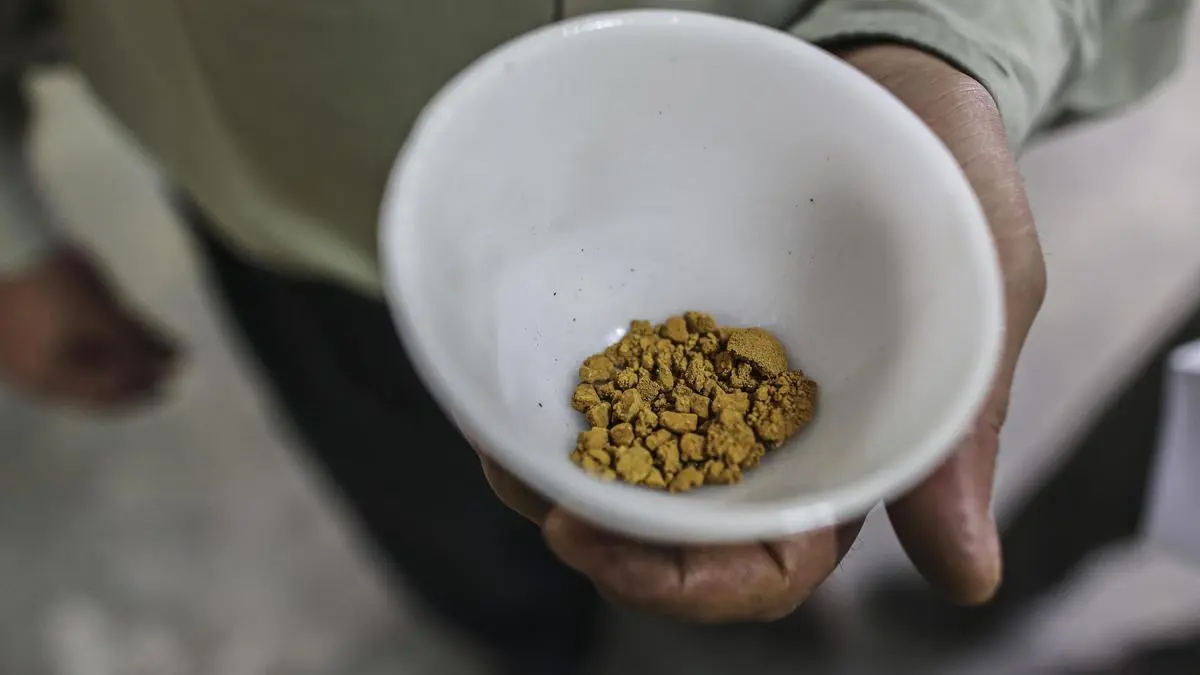
Old jewellery, dental fillings, electronic devices, and even industrial scraps can be melted down and refined into pure gold, without any loss of quality. The ability to reuse gold indefinitely makes recycling an ideal solution. Every gram of recycled gold means one less gram mined from the earth, one less tree cut, and one less river poisoned.
| Photo Credit:
DHIRAJ SINGH
Gold has always held a special place in human history, treasured for its rarity, beauty, and cultural significance. Beyond its ornamental value, it carries economic weight and plays a vital role in technology. But behind the sparkle lies a stark truth: traditional gold mining extracts more than just metal. It drains natural resources, damages ecosystems, and leaves deep scars on the environment.
This is where gold recycling emerges as a powerful alternative, allowing society to keep using gold without depleting the planet.
The hidden cost of gold mining
Mining gold is not simply about digging the earth. It often involves clearing forests, displacing wildlife, and using chemicals such as cyanide and mercury to extract the ore. These chemicals contaminate soil and water, threatening biodiversity and human health alike. Large-scale mining also accelerates soil erosion and destroys natural habitats.
The process is water- and energy-intensive, worsening the crisis in regions already facing water scarcity. With climate change aggravating droughts, the environmental footprint of mining grows even heavier.
Why recycling is the smarter choice
Gold recycling, by contrast, is both efficient and eco-friendly. It requires about 90% less energy than mining and significantly reduces water use and pollution. Old jewellery, dental fillings, electronic devices, and even industrial scraps can be melted down and refined into pure gold, without any loss of quality.
This ability to reuse gold indefinitely makes recycling an ideal solution. Every gram of recycled gold means one less gram mined from the earth, one less tree cut, and one less river poisoned.
A growing global movement
Globally, the shift towards gold recycling is already underway. The gold recycling market was valued at $14.7 billion in 2024 and is projected to cross $16 billion dollars in 2025. Europe and North America lead the way, while India is fast catching up, ranking fourth in the world by recycling 75 tonnes of gold in 2021.
The potential in India is particularly striking. With households and temples holding an estimated 32,000 tonnes of gold, even recycling just 1 per cent annually could reduce imports by nearly 30 per cent. That translates into huge savings for the economy and reduced dependence on external supply chains.
E-waste, too, presents a massive untapped opportunity. Reports suggest that India could recover materials worth 6 billion dollars annually by improving its e-waste recycling systems, creating not just wealth but also thousands of green jobs.
Gold recycling push
Recognising this opportunity, some companies are working to make recycling accessible and trustworthy. These companies enable people to sell their old or unused gold safely and transparently. Using advanced purity-testing machines, customers can see the exact value of their gold and receive fair prices based on live market rates.
For example, Muthoot Gold Point has recycled over 4 tonnes of gold, sending it to trusted refineries for reuse in jewellery and other industries. This model demonstrates how organised, transparent recycling can benefit both consumers and the environment.
Recycled gold for a green future
The significance of recycled gold extends beyond jewellery. Clean technologies such as solar panels, smartphones, and electric vehicles depend on gold for efficient conductivity. By recycling, we reduce electronic waste and make sustainable technologies more viable.
For a country like India, where gold consumption touches 800–1,000 tonnes annually, recycling offers a path to balance cultural traditions with sustainability.
Every Gram Counts
Consumers have a crucial role to play. Selling or donating old jewellery, choosing recycled gold products, and supporting e-waste recycling are simple but powerful steps. If adopted collectively, these practices can reduce imports, protect natural resources, and create sustainable livelihoods.
Gold, after all, is more than a metal. It is a resource that can either strain the planet or help shape a greener future—depending on how we use it. By embracing recycling, India can honour its long-standing love for gold while building a cleaner, healthier, and more sustainable tomorrow.
(The author is CEO of Muthoot Exim)
Published on November 16, 2025
